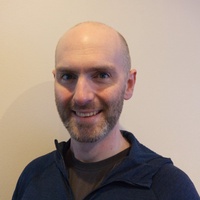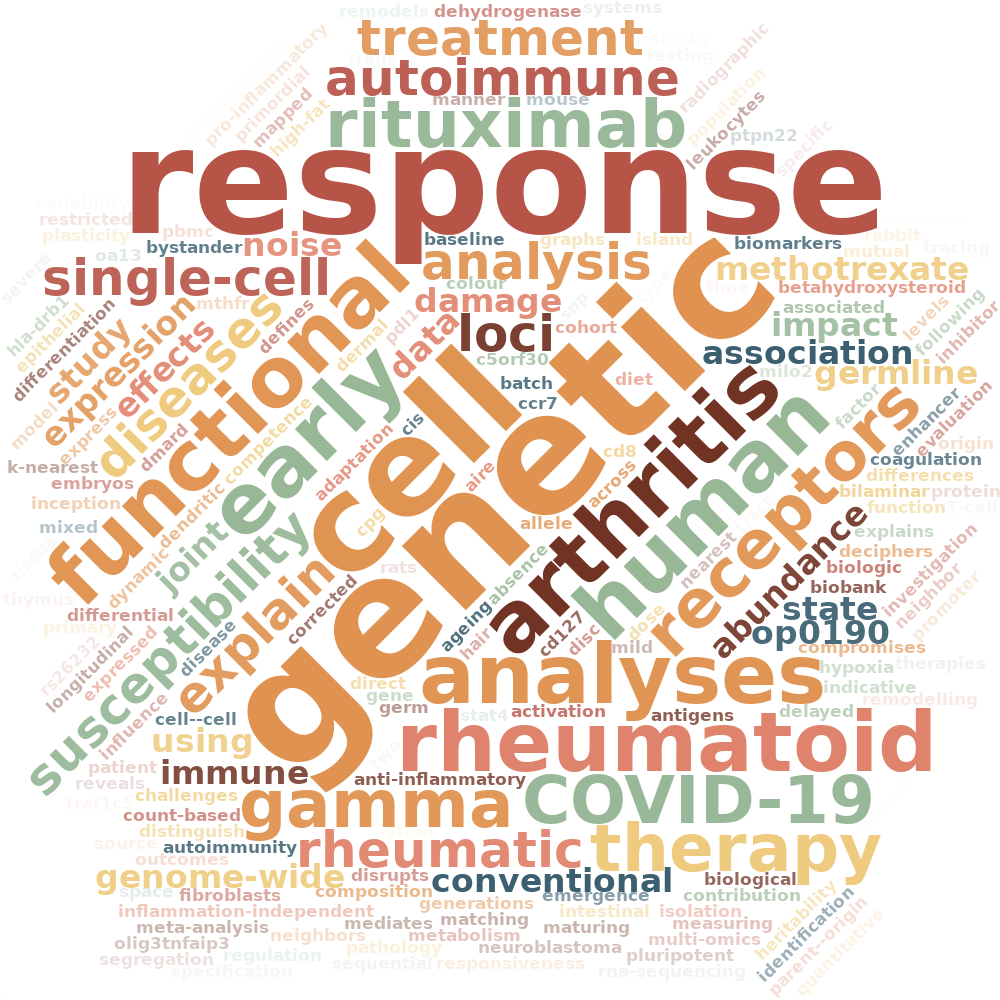
Lecturer
- About
-
- Email Address
- michael.morgan@abdn.ac.uk
- School/Department
- School of Medicine, Medical Sciences and Nutrition
Biography
The vision for my lab is to improve human health by identifying the molecular and cellular causes of immune ageing. To achieve this, my lab adopts an interdisciplinary approach at the intersection of computational biology, genetics and immunology. We investigate how ageing shapes T cell responses to infection, and develop computational algorithms for single cell 'omics data analysis which broadens the impact of our research.
My scientific training was a combination of wet-lab experimentation and computational biology in Leeds, Oxford and Cambridge before starting my lab here in Aberdeen.
Qualifications
- BSc Hons Medical Genetics2010 - University of Huddersfield
- PhD Pharmacogenetics2013 - University of Leeds
Memberships and Affiliations
- Internal Memberships
-
Institute of Medical Sciences Equality, Diversity and Inclusion committee
Aberdeen Computational Biology Forum - founder & organiser
British Society of Immunology - Aberdeen Immunology Group committee
IMS ECR Seminar Series - founder & organiser
- External Memberships
-
Genetics Society
British Society for Immunology
International Society for Computational Biology
Latest Publications
Environment-Dependent Modes of Adaptive Evolution in Neuroblastoma: Plasticity as a Selectable Trait
Working Papers: Preprint Papers- [ONLINE] DOI: https://doi.org/10.1101/2023.12.07.570359
Deciphering Cell-Type and Temporal-Specific Matrisome Expression Signatures in Human Cortical Development and Neurodevelopmental Disorders via scRNA-Seq Meta-Analysis
Working Papers: Preprint PapersMilo2.0 unlocks population genetic analyses of cell state abundance using a count-based mixed model
Working Papers: Preprint Papers- [ONLINE] DOI: https://doi.org/10.1101/2023.11.08.566176
Origin and segregation of the human germline
Life Science Alliance, vol. 6, no. 8, e202201706Contributions to Journals: ArticlesSequential enhancer state remodelling defines human germline competence and specification
Nature Cell Biology, vol. 24, no. 4, pp. 448-460Contributions to Journals: Articles
- Research
-
Research Overview
Our immune systems become less efficient as we get older, underpinning the increased risk of cancer, autoimmune disease and poorer outcomes of infection compared to when we are younger. My lab studies how ageing and genetics alter the emergence and abundance of immune cell states in homeostasis and disease, and how the molecular hallmarks of ageing shape immune responses. Current focus on the lab is how ageing shapes T cell regulation, activation and responses to antigenic stimulation.
By developing state of the art computational algorithms, we model variation in cell states and cell-cell interactions using single cell 'omics data modalities. This involves combining graph theory and statistical models to identify which cell types or interactions are perturbed by ageing and genetics. The impact of our research is broadened by the computational algorithms that we develop, and their application through collaborations with research groups that study cancer and immunology both nationally and internationally.
Potential PhD student candidates should contact me to discuss supervision opportunities.
Research Areas
Accepting PhDs
I am currently accepting PhDs in Biomedical Sciences.
Please get in touch if you would like to discuss your research ideas further.
Biomedical Sciences
Accepting PhDsResearch Specialisms
- Bioinformatics
- Immunology
- Human Genetics
- Genomics
Our research specialisms are based on the Higher Education Classification of Subjects (HECoS) which is HESA open data, published under the Creative Commons Attribution 4.0 International licence.
Current Research
Ageing is a major risk factor for autoimmune disease and cancer, and significantly increases the risk of worse outcomes after infection. While great progress has been made in identifying the molecular correlates of ageing surprisingly little is known about how somatic mutations impact on immune cell function and interactions.
Somatic mutations are hard to study in healthy tissue, where they are much less common than in cancer genomes. However, single-cell 'omics can identify somatic mutations in individual cells. Broadly, single-cell omic profiling has revealed a bewildering diversity of cell types and states defined at the, genomic, mRNA and protein levels. We are now in the position to scale up these experiments to profile biological systems across large cohorts of volunteers and patients to understand how immune cell states are affected by our genetic make-up, including somatic mutations, and the environments that we live in as we age.
Computational research
In my previous appointment I developed a computational algorithm, called Milo, to identify perturbed cell states from single-cell experiments (Dann et al. Nature Biotech 2022). Milo uses a blend of graph theory (nearest-neighbour graphs) and statistical modelling (generalized linear models) to identify which cell states are enriched or depleted in an experiment. My lab continues to develop this framework to incorporate mixed effect models and employ graph-theory to improve the computational speed. Such advancements open the door to statistical genetic analyses of single cell data. My lab uses these computational advances to solve biomedical problems from basic research to disease - which broadens the impact of our research.
For further reading see Dann et al., Nature Biotech 2022 and Kluzer et al., bioRxiv 2023
Experimental research
Emerging unpublished results from the lab indicate that somatic mutations, as a hallmark of ageing, contribute to immune system dysregulation. In parallel, immune checkpoint receptors show heterogeneous regulatory changes across the life course, which in tandem could contribute to immunosenescence. These are active areas of research in the lab driven by two questions:
1. How do somatic mutations shape immune responses to pathogens?
2. How does ageing re-wire autocrine and paracrine signalling during an adaptive immune response?
Past Research
My research to-date has spanned quantitative genetics, immunology and computational biology to understand the genetic and genomic regulation of cell-to-cell variability in protein and mRNA levels, altered cell fate decision-making in the ageing thymus, and the immune-related changes in blood of COVID19 patients at single-cell resolution. In tandem, I have developed the computational algorithms to integrate single-cell 'omic data and identify altered cell state abundance in single-cell experiments.

A word cloud encompasses the research focus of the Morgan lab.
Generated using https://shiny.rcg.sfu.ca/u/rdmorin/scholar_googler3/Select publications

Differential abundance testing using nearest-neighbour graphs
A neighbourhood graph derived from single thymic epithelial cells across mouse ageing. Points represent graph neighbourhoods and are coloured by the change in abundance over 52 weeks of the mouse lifecourse.
Milo performs differential abundance testing by modelling variation in cell content of nearest-neighbour graph neighbourhoods between experimental conditions, such as ageing, gene knock or comparing healthy controls vs. disease. For details see Dann et al. Nature Biotechnology (2022)
Collaborations
Collaborations
Georg Holländer - University of Basel & Oxford University - Progeny-progenitor relationships in the thymic epithelium
Doug Winton - Cancer Research UK-Cambridge Institute, University of Cambridge - Genetic and genomic regulation of intestinal stem cell dynamics
Alejandra Bruna - Institute of Cancer Research, London - Evolution of chemotherapeutic resistance in neuroblastoma
Tim Halim - Cancer Research UK-Cambridge Institute, University of Cambridge - Single-cell profiling of innate-like lymphoid cells in pancreatic cancer
Maike de la Roche - Cancer Research UK-Cambridge Institute, University of Cambridge - The role of Gli1 and hedgehog signalling in thymocyte development
Patrick Cao - Institute of Medical Sciences, University of Aberdeen - Developing Lecto-seq for combined single-cell profling of glycan-lectin interactions and transcriptomes
Funding and Grants
Royal Society Ageing and autoimmunity - the Ying and Yang of CTLA-4 and T cell function: (December 2023 - November 2024) - £69,557.25
Friends of ANCHOR Pushing the right buttons: a physiologically relevant, controllable, system for T cell activation in cancer research: (August 2023 - July 2024) - £11,827.01
Lab startup funds - £10,000
PhD studentship - £78,000
- Publications
-
Page 1 of 3 Results 1 to 10 of 23
Environment-Dependent Modes of Adaptive Evolution in Neuroblastoma: Plasticity as a Selectable Trait
Working Papers: Preprint Papers- [ONLINE] DOI: https://doi.org/10.1101/2023.12.07.570359
Deciphering Cell-Type and Temporal-Specific Matrisome Expression Signatures in Human Cortical Development and Neurodevelopmental Disorders via scRNA-Seq Meta-Analysis
Working Papers: Preprint PapersMilo2.0 unlocks population genetic analyses of cell state abundance using a count-based mixed model
Working Papers: Preprint Papers- [ONLINE] DOI: https://doi.org/10.1101/2023.11.08.566176
Origin and segregation of the human germline
Life Science Alliance, vol. 6, no. 8, e202201706Contributions to Journals: ArticlesSequential enhancer state remodelling defines human germline competence and specification
Nature Cell Biology, vol. 24, no. 4, pp. 448-460Contributions to Journals: ArticlesCoagulation factor V is a T-cell inhibitor expressed by leukocytes in COVID-19
iScience, vol. 25, no. 3, pp. 103971Contributions to Journals: ArticlesPBMC isolation
protocols.io.Other Contributions: Other ContributionsThe impact of hypoxia on B cells in COVID-19
EBioMedicine, vol. 77, 103878Contributions to Journals: ArticlesDifferential abundance testing on single-cell data using k-nearest neighbor graphs
Nature Biotechnology, vol. 40, no. 2, pp. 245-253Contributions to Journals: Articles- [ONLINE] DOI: https://doi.org/10.1038/s41587-021-01033-z
Cells of the human intestinal tract mapped across space and time
Nature, vol. 597, no. 7875, pp. 250-255Contributions to Journals: Articles
